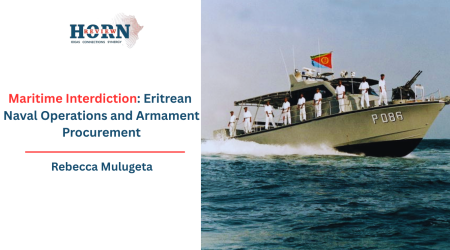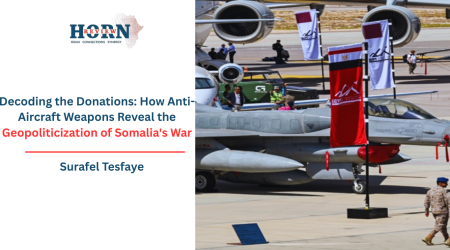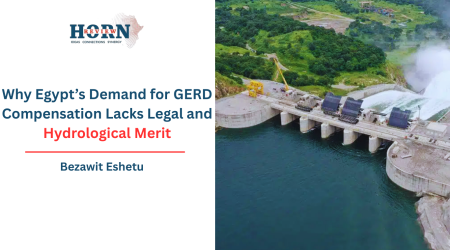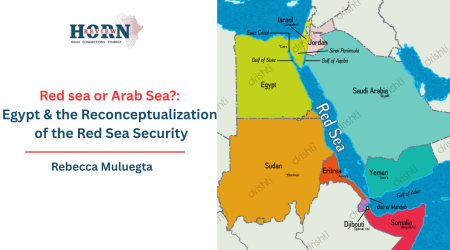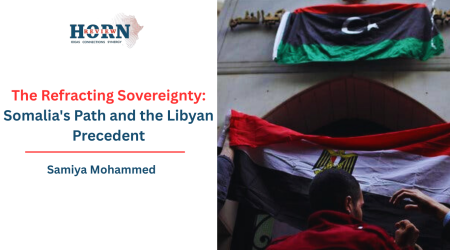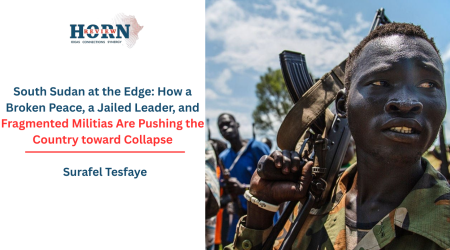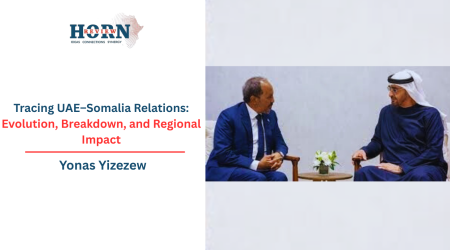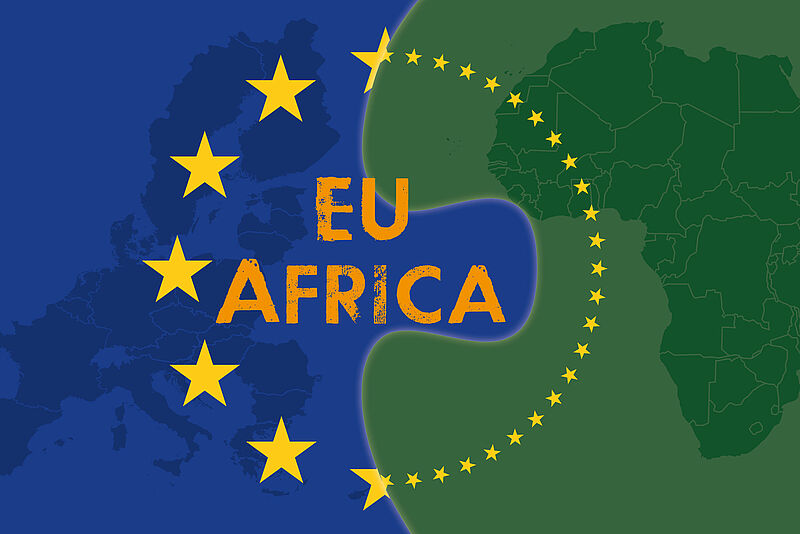
26
Apr
Geopolitical Earthquakes: The EU’s Strategic Pivot and Africa’s Role as Europe’s Frontier for Economic Recalibration
The European Union’s engagement in Ethiopia and the wider Horn of Africa goes far beyond typical development aid. It is a multifaceted geopolitical recalibration driven by deep economic shifts, contested global influence, and the reverberations of protectionist trade policies. Europe’s pivot toward Africa reflects a web of imperatives: diversifying supply chains, asserting regulatory power, mitigating migratory pressures, and reclaiming strategic autonomy amid a fragmenting international order. At the core of this pivot is not just economic opportunity, but a response to vulnerabilities exposed during the Trump administration’s tenure, as transatlantic trade tensions reshaped the global landscape.
Ethiopia as a Strategic Node in Europe’s Pivot
Ethiopia has emerged as a key player in this recalibration, offering a viable alternative to increasingly expensive and politically uncertain Asian production hubs. With a growing labor force, an expanding urban middle class, and state-led industrial ambitions, the country presents European investors with an attractive proposition. Industrial zones like the **Hawassa Industrial Park** have become magnets for foreign capital, aligning with Europe’s desire to localize production in politically cooperative, cost-effective environments. Yet, this move is not solely economic, it is part of a broader strategic impulse to embed European industries in emerging markets, asserting influence over regulatory frameworks and shaping institutional development in these regions.
“Ethiopia’s rapidly growing labor force, industrial push, and strategic location make it a crucial node in Europe’s long-term economic recalibration.”
The EU’s €240 million grant package to Ethiopia under the 2024 Annual Action Programme epitomizes this shift. Although framed in terms of post-conflict recovery and partnership, the grant targets key sectors, agribusiness modernization, digital workforce development, and climate resilience, that directly serve Europe’s broader supply chain security. This thawing of financial support, following its suspension during the Tigray conflict, signals not only renewed confidence in Prime Minister Abiy Ahmed’s reformist agenda but also a recognition of Ethiopia’s strategic role in Red Sea trade routes and regional security dynamics. These funds are not mere acts of benevolence; they are part of a larger strategy to cement Europe’s influence in a region where the EU is increasingly vying with China, Turkey, and Gulf nations for strategic footholds.
The Global Gateway Initiative: Europe’s Counter to China’s Belt and Road
The EU’s strategy in Africa has begun to coalesce around the Global Gateway Initiative, a €300 billion counter to China’s Belt and Road Initiative (BRI). While the BRI focuses on debt-financed megaprojects aimed at infrastructure development and resource extraction, Europe’s Global Gateway emphasizes a softer, values-driven model built on transparency, sustainability, and institutional reform. The initiative is not only about fostering goodwill; it is an exercise in long-term economic entrenchment and a projection of European soft power.
Programs like the Africa-Europe Youth Academy and the Intra-Africa Mobility Scheme reflect a deliberate effort to build human capital, create vocational pathways, and harmonize regulatory environments with European standards. These initiatives aim to strengthen ties with Africa by shaping governance and development in line with European interests.
“The Global Gateway Initiative is a calculated effort to counter China’s influence in Africa, creating pathways for long-term economic cooperation and soft-power projection.”
Through such investments, the EU seeks to build strategic partnerships with African nations that go beyond simple economic transactions. They are seen as a means to secure long-term influence, shape governance outcomes, and deepen institutional ties that align with European norms and regulatory standards.
The Unintended Consequences of Protectionism: Trump’s Legacy
While the EU’s pivot to Africa is part of a long-term strategy, it was accelerated by an unexpected catalyst, the Trump administration’s protectionist trade policies, particularly its tariffs on steel and aluminum. These moves sent ripples through transatlantic economic relations, exposing Europe’s overreliance on the U.S. market. The retaliatory trade skirmishes that followed forced Europe to rethink its economic dependencies and seek alternative trade corridors.
“Donald Trump’s protectionist policies inadvertently accelerated Europe’s pivot to Africa, triggering a shift in Europe’s economic diplomacy as it sought alternatives to American markets.”
For Europe, Africa presented itself as both a strategic hedge and a proving ground for a new economic diplomacy. The preferential access to European markets under the Economic Partnership Agreements (EPAs) and the continent’s vast developmental needs made Africa an attractive alternative to increasingly unpredictable trade relations with the United States. Projects that had once been mired in bureaucratic inertia were suddenly revived and reimagined as urgent priorities. What was once a distant long-term vision became a necessity driven by shifting geopolitical realities.
Ethiopia’s Dual Role: A Gateway and Buffer Zone
Ethiopia, by virtue of its size, location, and ongoing reform momentum, has become both a gateway for European investment and a buffer zone in the geopolitical landscape. As a nation central to regional security, Ethiopia’s internal development is increasingly seen as a linchpin in broader issues of migration, regional stability, and global trade architecture.
Through its involvement in Ethiopia, the EU seeks not just economic partnerships but strategic positioning in a rapidly changing global order. The EU’s financial and political investments are not merely about aid; they are tactical maneuvers in a high-stakes geopolitical game where infrastructure, governance, and institutional alignment are the currency of influence. This strategy reflects Europe’s desire to safeguard its interests in an increasingly fragmented international order, where alliances are more fluid, and global trade is politicized.
“Ethiopia’s role as both a gateway and a buffer zone underscores its strategic importance to Europe’s broader geopolitical recalibration.”
In this context, Ethiopia’s growing industrial base and reformist agenda align with Europe’s broader goal of strategic autonomy, an ambition to decouple from external economic and geopolitical pressures. By deepening its ties with Ethiopia and the Horn of Africa, the EU not only secures a foothold in emerging markets but also asserts itself in the face of shifting global dynamics.
Conclusion: A High-Stakes Game of Influence
Europe’s recalibration of its economic and geopolitical strategies in Africa, particularly in Ethiopia, is a complex and multi-layered maneuver. What might appear as simple development aid or investment is, in reality, a calculated response to the vulnerabilities exposed by recent trade conflicts and shifting global power dynamics. Ethiopia’s role in this recalibration cannot be understated. The EU’s engagement is not just about economic growth; it is about securing long-term influence, shaping governance, and embedding itself in a critical geopolitical region. As Europe seeks to navigate a more fragmented international order, its strategic presence in Africa, especially through initiatives like the Global Gateway and investment in Ethiopia, represents Europe’s commitment to reshaping its economic dependencies and asserting its role in the global power structure.
By Tsega’ab Amare,Researcher,Horn Review

